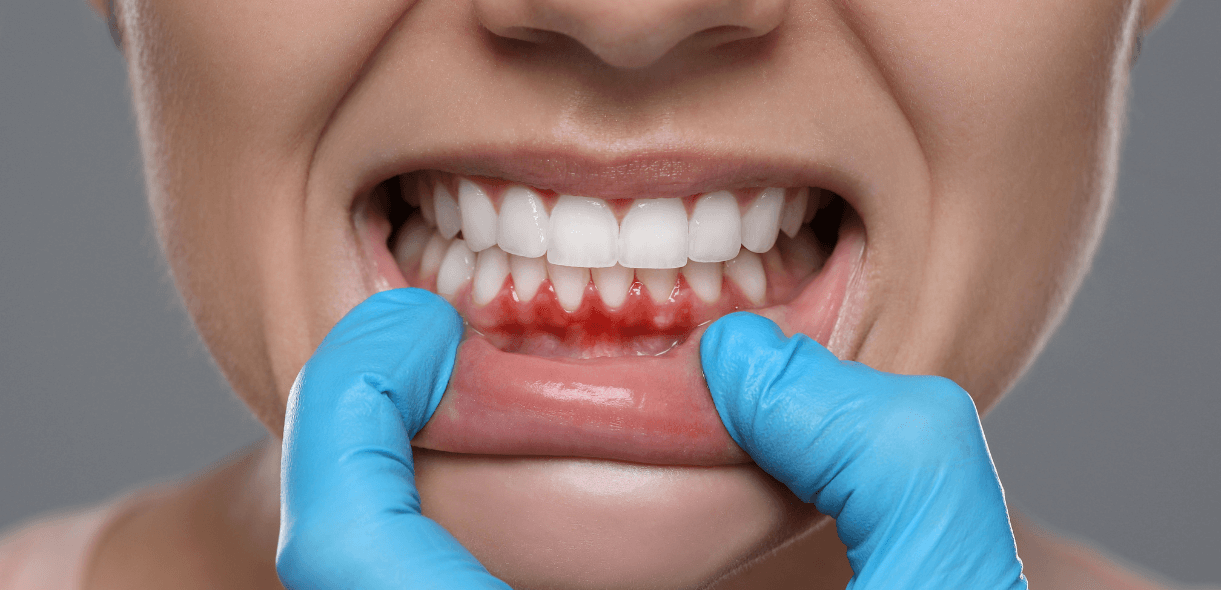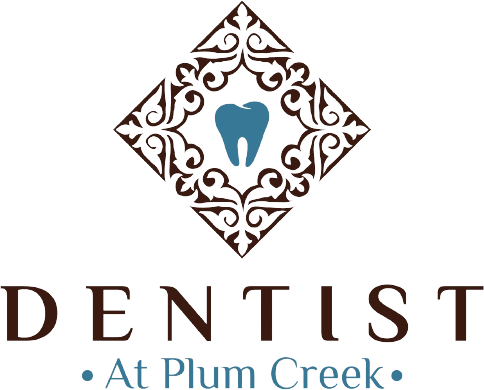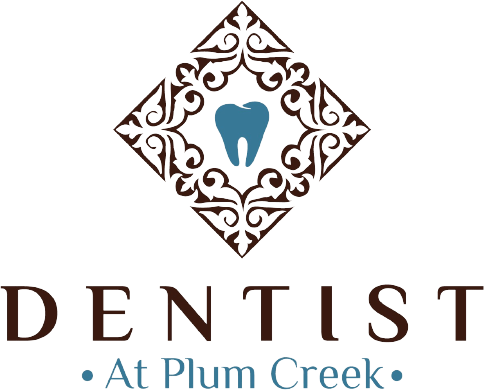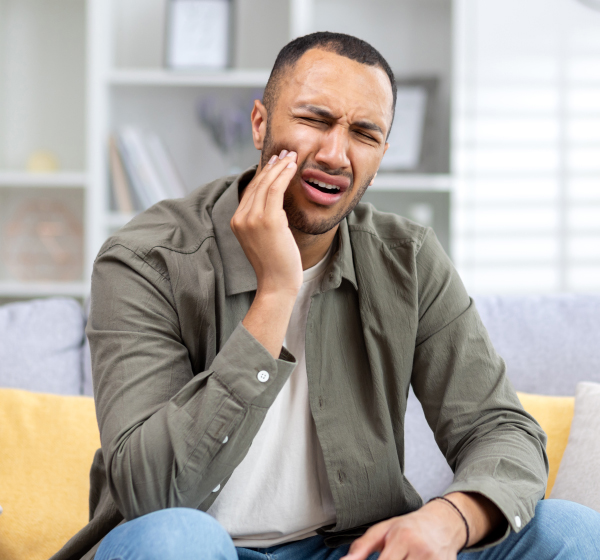$99 New Patient Special - Includes Exam and X-Rays.
Immediate Actions for Bleeding Gums

By Dentist At Plum Creek Kyle
Introduction
When it comes to oral health, bleeding gums can be a cause for concern, indicating underlying issues that require immediate attention. Understanding the underlying causes and taking swift actions for bleeding gums is essential to prevent further complications and maintain overall oral health. In this guide, we’ll explore the common causes of bleeding gums and delve into actionable steps you can take to alleviate this discomfort and promote gum health. By empowering yourself with knowledge and proactive measures, you can effectively address bleeding gums and pave the way for a healthier smile.
Understanding the Causes of Bleeding Gums
Bleeding gums can be triggered by a variety of factors, each contributing to the overall health of your gums and teeth:
Gingivitis and Gum Disease: The most common cause of bleeding gums is gingivitis, an early stage of gum disease. This condition arises from the accumulation of plaque, a sticky film of bacteria, on the gumline. If left untreated, gingivitis can progress to periodontitis, a more severe form of gum disease characterized by inflammation and infection of the gums and supporting structures of the teeth.
Poor Oral Hygiene Habits: Inadequate oral hygiene practices, such as infrequent brushing and flossing, can lead to plaque buildup along the gumline and between teeth. This plaque harbors bacteria that irritate the gums, causing inflammation and bleeding. Consistent and thorough oral care is essential for preventing plaque buildup and maintaining gum health.
Vitamin Deficiencies: Deficiencies in certain vitamins, particularly vitamin C and vitamin K, can weaken the gums and make them more susceptible to bleeding. Vitamin C is crucial for collagen production, which is essential for the strength and integrity of gum tissues. Also vitamin K plays a role in blood clotting, helping to prevent excessive bleeding from minor injuries or inflammation in the gums.
Hormonal Changes: Hormonal fluctuations, such as those experienced during pregnancy, puberty, or menopause, can affect the health of the gums. Increased levels of hormones like estrogen can lead to heightened gum sensitivity and inflammation, making them more prone to bleeding. Proper oral hygiene and regular dental care are particularly important during these times to mitigate the risk of gum problems.
Medical Conditions: Certain systemic conditions and diseases can impact gum health and contribute to bleeding gums. For example, leukemia, a type of blood cancer, can affect the production of blood cells and impair the body’s ability to clot properly, leading to bleeding gums. Blood clotting disorders, such as hemophilia, can also increase the risk of gum bleeding even with minor trauma or irritation.
Immediate Actions to Stop Bleeding Gums
When faced with bleeding gums, taking immediate action is crucial to alleviate discomfort and prevent further complications. Here are some effective steps you can take:
Gentle Oral Hygiene Practices: Opt for a soft-bristled toothbrush and employ gentle circular motions while brushing. This helps to remove plaque and debris without causing further irritation to the gums. Additionally, make it a habit to floss regularly to eliminate food particles and plaque from between teeth and along the gumline.
Rinse with Saline Solution or Hydrogen Peroxide: Prepare a saline solution by dissolving salt in warm water and swish it around your mouth. This helps to cleanse the gums and promote healing. Alternatively, dilute hydrogen peroxide with water and use it as a mouthwash to disinfect the area and reduce inflammation.
Apply Pressure to the Gums: To stem the bleeding, gently apply pressure to the affected area using clean gauze or a damp tea bag. This technique helps to promote clotting and reduce bleeding effectively. Remember to avoid excessive force to prevent further irritation to the gums.
Utilize Over-the-Counter Remedies: Certain over-the-counter products can provide relief and aid in the healing process. Consider using antiseptic mouthwashes to disinfect the mouth and reduce bacteria that contribute to gum inflammation. Additionally, topical gels or ointments can soothe irritated gums and facilitate healing.
Avoid Irritants: Take proactive measures to protect your gums from further irritation. Avoid tobacco products, as they can exacerbate gum inflammation and hinder the healing process. Similarly, steer clear of spicy or acidic foods that can aggravate gum sensitivity and contribute to bleeding.
When to Seek Professional Help
While these home remedies can provide temporary relief, it’s essential to seek professional help if:
- The bleeding is persistent or severe.
- Bleeding recurs despite home remedies.
- You experience additional symptoms like swelling, pain, or loose teeth.
- Regular dental check-ups are vital for preventive care and early detection of dental issues.
Tips for Maintaining Gum Health
Preventive measures are key to maintaining gum health:
- Stick to a consistent oral hygiene routine, including brushing twice a day and flossing daily.
- Eat a balanced diet rich in vitamins and minerals, especially those essential for gum health like vitamin C and K.
- Schedule regular dental visits for professional cleanings and check-ups.
- Consider lifestyle factors such as avoiding tobacco and managing stress, as they can impact gum health.
Conclusion
Taking immediate action for bleeding gums is crucial for oral health. By understanding the causes and implementing the right steps, you can effectively manage bleeding gums and maintain optimal gum health. Remember to seek professional help if needed and prioritize preventive care to keep your smile bright and healthy.
So, if you’re in Kyle, TX, and need urgent dental care for bleeding gums or any other oral health issues, turn to Dentist At Plum Creek Kyle for expert assistance. Our team is here to provide compassionate care and effective solutions to restore your oral health. Contact our emergency dentist in Kyle, TX, today to schedule an appointment and take the first step towards a healthier smile.





